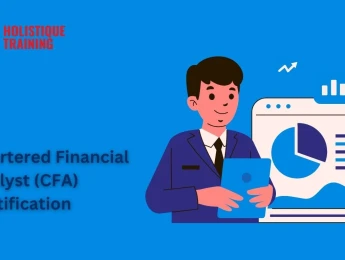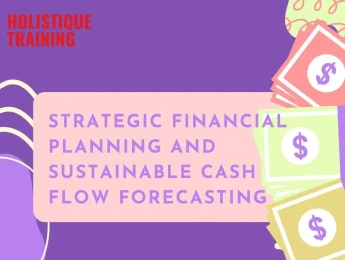Microsoft Excel is a powerful tool for enhancing financial and business reporting processes. Its spreadsheet functionality lets users easily organise and analyse large economic data sets. It provides a structured platform for creating financial statements, such as income statements, balance sheets, and cash flow statements.
The built-in formulas and functions enable users to perform complex calculations and generate accurate financial metrics, facilitating better decision-making. Excel's ability to create dynamic charts and graphs enhances the visualisation of financial trends, making it easier for stakeholders to grasp key insights.
Excel also supports data integration and can be linked to external databases, streamlining the importing and updating of financial information. Its flexibility allows for customising reports, and tailoring them to specific business needs.
Mastering Excel for reporting is imperative for your business, enabling your team to effectively handle and analyse financial data, ultimately supporting well-informed decision-making.
Upon completion of this course, participants will be able to:
- Elevate proficiency in Excel for enhanced business reporting.
- Strategies streamlined business reporting and reconciliation models.
- Efficiently craft, compile, and dispatch business and accounting reports.
- Create dynamic business dashboards and scorecards, aiding professionals in performance measurement and decision-making.
- Apply advanced report development methods, integrating Excel with Access, Web, Text, SQL, Oracle, and various databases.
- Utilise macros to expedite repetitive tasks and administration.
- Heighten Excel skills to achieve greater business reporting expertise.
This course is designed for anyone responsible for financial planning or data analysis within an organisation, helping to make large financial decisions. It would be most beneficial for:
- Business Owners
- Financial Directors
- Chief Financial Officers
- Accountants
- Data Analysts
- Financial Analysts
- Financial Controllers
- Account Managers
This course uses a variety of adult learning styles to aid full understanding and comprehension. Participants will view trainer-led presentations to understand the power of Excel for financial organisations and departments. They will then take part in interactive workshops to understand some of the more complex elements of Excel and put these into practice using test data.
The participants will then work together to determine how this knowledge could assist in developing dashboards and scorecards to enhance decision-making within their own organisations.
Day 5 of each course is reserved for a Q&A session, which may occur off-site. For 10-day courses, this also applies to day 10
Section 1: An Introduction to Excel for Business
- Understanding the Excel interface and navigation.
- Basic formulas and functions for business applications.
- Data entry and formatting techniques in Excel.
- Creating and modifying charts and graphs.
- Best practices in Excel for business professionals.
Section 2: Advanced Tools Within Excel
- Learning advanced formula creation.
- Pivot tables and their uses.
- Using a multiple scenario manager.
- Understanding your data.
- Dynamic consolidation and ranges.
- Spinner data modelling.
Section 3: Consolidating Data
- Managing and analysing data tables in Excel.
- Introduction to PivotTables for business analysis.
- Utilising Excel for financial modelling and analysis.
- Advanced data analysis with Excel's data analysis tools.
- Automating tasks with Excel macros and VBA.
Section 4: Developing Useful Dashboards & Scorecards
- Collaborative work in Excel: sharing and version control.
- Using Excel for project management and task tracking.
- Data visualisation and dashboard creation in Excel.
- Excel tips and tricks for efficient business use.
- Integrating Excel with other Microsoft Office applications.
Section 5: Advanced Report Generation
- Troubleshooting and error checking in Excel.
- Excel security: protecting data and worksheets.
- Customising Excel for business reporting needs.
- Excel templates for standard business processes.
- Excel for business forecasting and trend analysis.
- Utilising VBA (Visual Basic for Applications) for advanced reporting.
- Building dynamic dashboards with data powered by macros.
- Integrating macros with diverse data sources for real-time reporting.
Section 6: Macro-Charged Reporting
- Optimising report performance through efficient macro coding.
- Real-world applications and case studies showcasing macro-driven reporting.
- Practical exercises aimed at developing proficiency in macro-charged reporting.
- Applying data visualisation techniques to enhance macro-driven reports.
- Elevating traditional reporting to the efficiency offered by macro-charged methods.
- Adapting macro-charged reporting to meet evolving business requirements.
- Continuous learning and staying updated on the latest macro-charged reporting techniques.
Upon successful completion of this training course, delegates will be awarded a Holistique Training Certificate of Completion. For those who attend and complete the online training course, a Holistique Training e-Certificate will be provided.
Holistique Training Certificates are accredited by the British Assessment Council (BAC) and The CPD Certification Service (CPD), and are certified under ISO 9001, ISO 21001, and ISO 29993 standards.
CPD credits for this course are granted by our Certificates and will be reflected on the Holistique Training Certificate of Completion. In accordance with the standards of The CPD Certification Service, one CPD credit is awarded per hour of course attendance. A maximum of 50 CPD credits can be claimed for any single course we currently offer.
- Course Code PF1-137
- Course Format Classroom, Online,
- Duration 5 days














